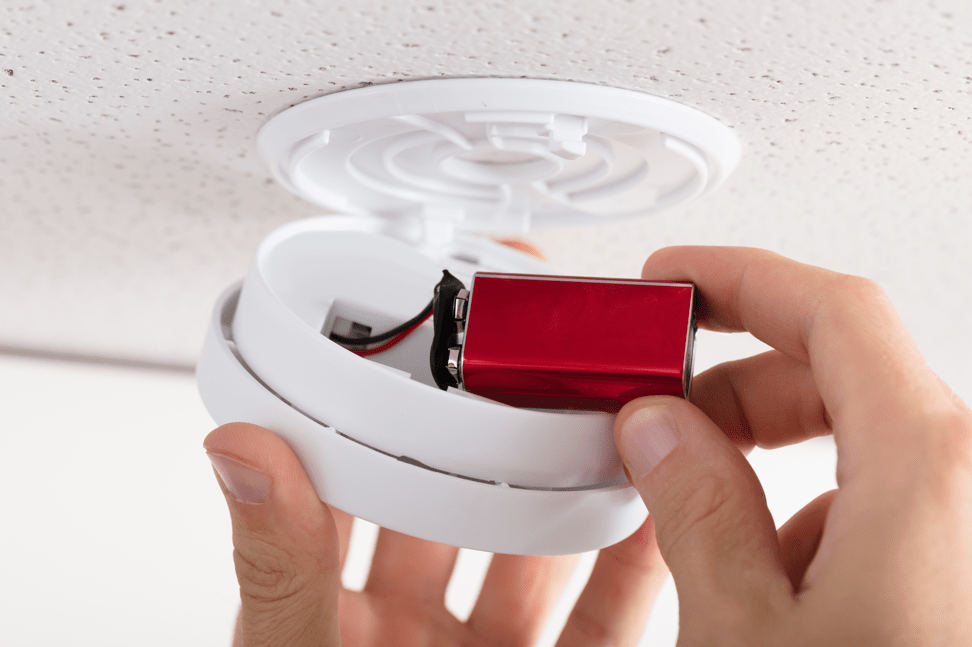Why Does My Smoke Detector Chirp at Night?

Smoke detectors are among the most important safety devices in the home. Statistics from the National Fire Protection Association, based on 2012-2016 data, reveal 40% of home fire related deaths happened in residences without smoke alarms, while 17% of deaths occurred where alarms weren’t working. About 25% of device failures were caused by dead batteries. In 43% of cases where smoke alarms failed during fires, missing or disconnected batteries were to blame.
But that doesn’t answer the quintessential question many homeowners have: Why is my smoke detector chirping in the middle of the night?
Nobody wants to be woken up because of a false alarm. A chirp, which may or may not suggest a problem, is certainly not as blaring as a smoke detector during an emergency. It is nonetheless something that gets your attention. Here’s why smoke detectors are more likely to start chirping at night:
Batteries, Batteries, Batteries
Of all the components in a smoke detector, the battery gets the most attention. Alkaline batteries are typically used in smoke alarms. These produce energy via a reaction between zinc metal and manganese dioxide that is affected by temperature.
An alkaline battery can lose 2% of its power every year when stored at room temperature. Raise the temperature to 85°F, and the battery will drain by 5% per year. If you live in a hot climate, the effect is even worse. A battery will lose 25% of its energy in 100°F temperatures.
Alkaline batteries only need to be stored in a freezer if you live in a tropical climate without too many seasonal variations.
However, batteries are affected by temperature whether they are installed in a device or not. Colder temperatures will slow battery discharge. The cold will also result in a weaker voltage for an electrical device, negatively affecting its performance.
Chirp, Chirp, Chirp
A chirp is a smoke detector’s way to alert you of a low battery. But it doesn’t necessarily mean the battery is about to go dead. The temperature is generally cooler at night and, in turn, lower temperatures mean slight drops in voltage. The drop might be minimal but enough to affect a chemical reaction that triggers the smoke detector’s low battery alarm.
All this tends to happen in lower temperatures, in the dark, and of course at night, when everyone is trying to sleep. You wish you could turn over and ignore it. While you could do so tonight, don’t wait too long to test the battery and/or replace it. The smoke detector battery in question may have lost a significant amount of its power, and you don’t want to be left with a dead alarm. A non-functional smoke detector can put your life in danger.
Call Your Los Angeles Electrician for Proper Smoke Alarm Installation
Serving Los Angeles, Orange County, and Riverside County, as well as all of Southern California, Express Electrical Services is committed to keeping your home and family safe. We know how to install smoke detectors properly and place them according to legal and safety guidelines. Local customers depend on us to test and replace their smoke alarms as well to maximize safety during an emergency. For smoke detector tips, 24/7 emergency electrical service, and installations, repairs, and upgrades, call or contact us on the web to schedule a service today!









Robert Hogward says: